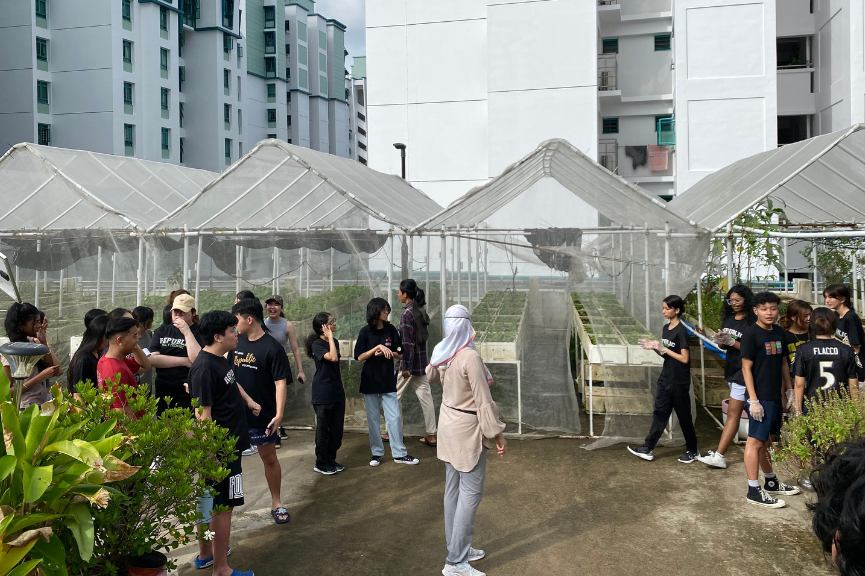Ask any student in Singapore about our education system and he or she will likely share how stressful it is. But that’s part and parcel of student life, right? After all, our nation touts some of the brightest individuals, and our students have consistently secured top ranks across global academic achievement tests.
But should we encourage this obsession of grades and competitive culture among our students? Is being top in class at the expense of our mental well-being worth it?
The Education Ministry recently announced a slew of changes, including removal of mid-year exams and streaming in secondary schools, expanding full subject-based learning and offering easier admission to tertiary institutions – this is a step in the right direction. I think it’s safe to say that the worries of many Singaporeans have finally been heard.
THE CRUX OF THE MATTER
Over the years, critics of Singapore’s education system have voiced out a multitude of factors contributing to the “flawed” system – tedious school schedules, too much homework, exams after exams… We have all been there. But perhaps the bigger underlying issue is an over-emphasis on grades, a problem rooted in Singapore’s meritocratic system.
Just three years ago, I was still drowning in books while studying for my O-Level exams. Not that anyone expects differently of a student sitting for the most important exam in secondary school. Letting myself sleep in a little longer on school mornings only turned into guilt when I saw my peers early to class, scribbling down notes or working their way through their Ten-year series (TYS) books. Perhaps for the second time.
The usual conversations I heard my peers engaged in about upcoming tests, assignments due, their never-ending fatigue and stress was nothing new. Losing sleep and mental breakdowns seemed like the norm for us. Not to mention questions like “Did you study for the test?” often involved a sort of tension heightening the competitive spirit among peers.
Nothing wrong with spending a bit (or a lot) of time studying or perfecting assignments – until it turns into a stressful and tedious cycle driven by the need to excel at them, and in turn, neglect mental and physical wellbeing.
Mental health issues among students have often been downplayed simply as a phase. Saying I couldn’t cope with school while having poor grades just meant that I was not as academically competent as my peers, and that I was just trying to excuse my lack of effort.
Ultimately, it’s important to remember that every student copes with stress differently and not every one is academically inclined. We are good in different things. Not everyone can emerge at the top of a system and culture emphasizing academic results as the sole determinant of students’ futures. Being book smart can only get you so far. In the real world, soft skills such as communication, adaptability, and interpersonal skills are arguably more useful in the long term.
Being book smart can only get you so far. In the real world, soft skills such as communication, adaptability, and interpersonal skills are arguably more useful in the long term.
NO PAIN, NO GAIN?
Back then, academic success to me was defined by the students who were disciplined enough to spend hours making study notes, memorizing content, starting their TYS books early… Sometimes the same students who chose to sacrifice their happiness, friends and hobbies just for good grades. I often wondered if I should also be spending hours studying after school and going out less on the weekends.
Sitting for tests and exams weren’t a matter of assessing my knowledge of the content, but rather the grade or score which showed on the paper. Finding closure by comparing my answers with my peers, only to stress out about having different answers was routine. And alas, the walk of shame back home to parents eagerly awaiting the answer to their question, “How was the exam?”.
Afterall, students are driven by the idea that academic success is a rat race determining their fate – Getting the right grades meant an easier path to their desired future education institute. There are only so many spots available for the masses to compete for.
With added pressure from my parents to do well and achieve specific grades, the stress was overwhelming back then. Before the national exams, there were also Continual Assessments, Mid-year and preliminary exams to worry about. All of which were testaments to my academic abilities – well, at least for my parents and me. With every bad grade, my confidence in my academic abilities quickly deteriorated and the more I felt education becoming a chore.
For many students including myself, finding ways to cut corners when preparing for exams was key to navigating the rigid system. There were always specific ways of answering exam questions, keywords to include, common repeated questions to look out for, and even chapters we can avoid studying because “it’s unlikely they will test it again”.
While such methods can give students an edge to score well for exams, overtime it may only render efforts to learn and study as a means to an end result. Perhaps the removal of exams and introduction of full-subject-based banding will help reignite the joy of learning, or at least help students realign their focus more on the material, rather than the results.
THE GRIND MUST STOP
That said, I am grateful for my education journey so far, for it has helped me discover my interests and passions. It has taught me how to embrace failure and understand that no two students are the same. That my education is a lifelong process, and I am allowed to figure it out as I go.
I can only wish that I had not spent so much time worrying about my grades, which led to me losing sight of my motivation to learn and study. I’m now looking towards better days, where my education no longer feels like an endless grind for success, and fulfilment comes from gaining new knowledge.
It’s time students cut themselves some slack and lift the endless stress plaguing our generation. Well, now we have even more reason to do so. With the new changes, students can place less emphasis on academic results and have greater flexibility to enjoy the learning process and pace themselves accordingly.
Whether you are studying in a secondary school or polytechnic, take a moment to acknowledge how far you’ve come and be proud of your efforts. The triumph of good results may only last momentarily, so are we really going to dictate our happiness with our academic outcomes?






